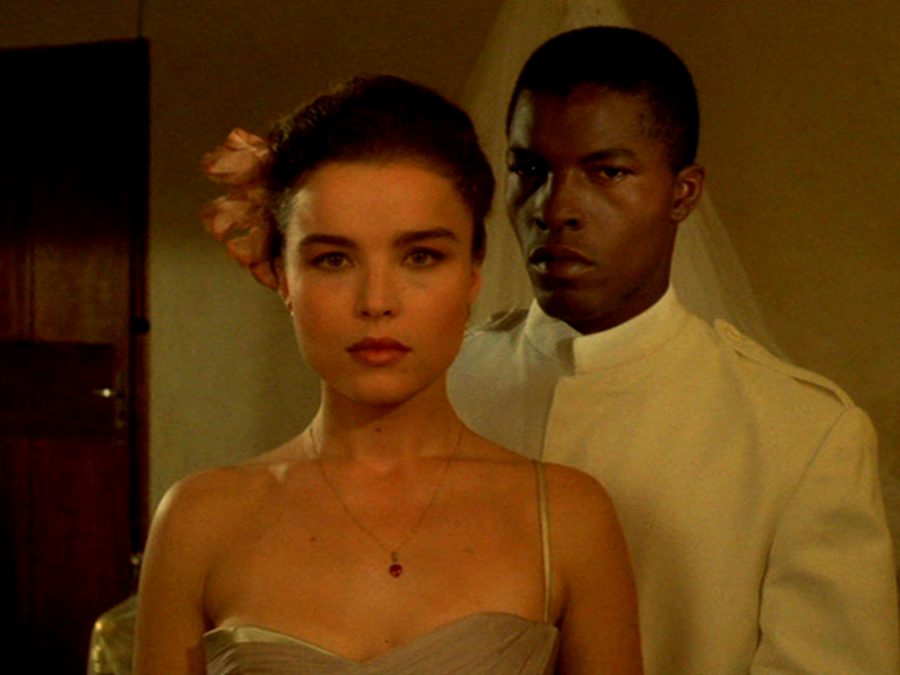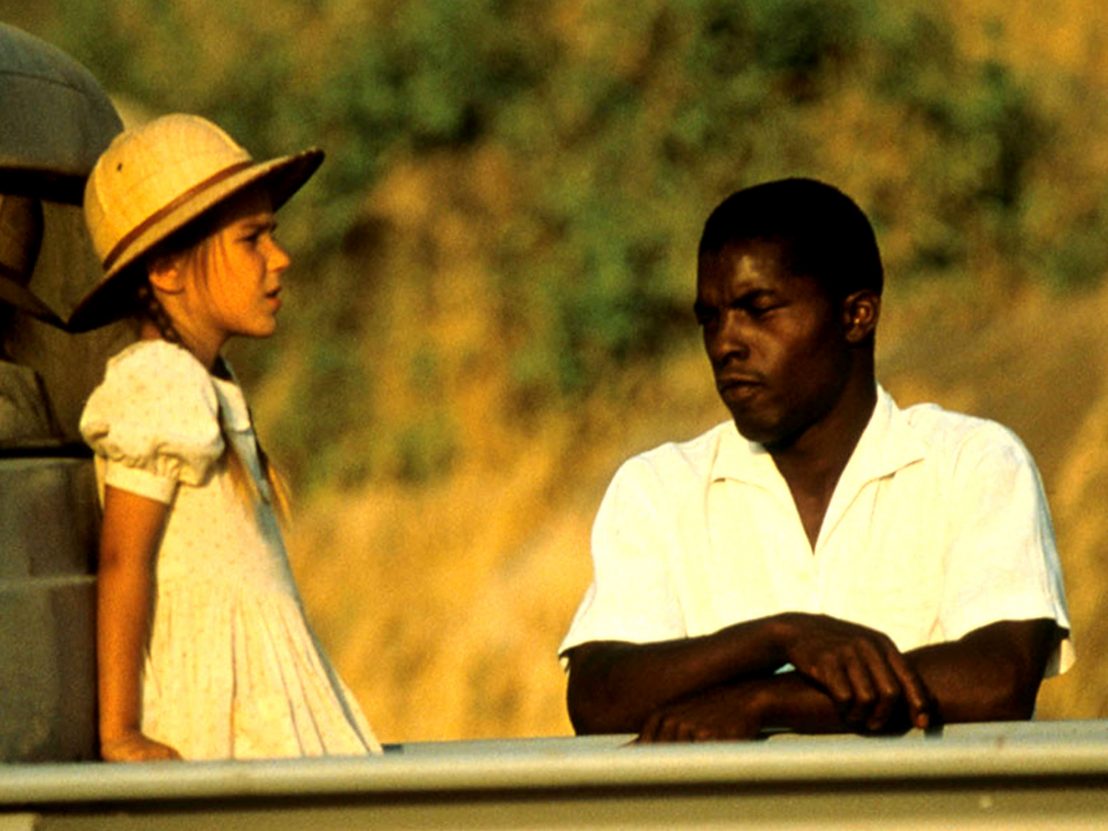
Chocolat is a 1988 film directed by Claire Denis, about a French family that lives in colonial Cameroon. The film introduces the character of France as an adult but the majority of the film takes place while she is in a young girl in Cameroon with her family. As a young girl she befriends the help, a young native Cameroonian man named Protée.
As the film develops, there is this obvious sexual tension exchanged through looks between the mother, Aimée, and Protée, as she asks more of Protée when her husband leaves for work. As the film advances, Aimée seems to get progressively express her discontent for Cameroon and her living situation as she gets angrier with her cook as there is a language barrier. Protée rejects Aimée’s advances leading to his demotion to work in the garage. Protée is presented as a rather confident and secure but quiet character that seems to laugh and secretly judge Aimée’s desesperation and troubles, all while Denis placing major emphasis on his fit body and lack of facial expressions.

The film follows France as a child and presents her as a somewhat native of Cameroon, learning the native language and spending most of her time with the native Cameroonians that work for the family. Her childhood juxtaposes the beginning of the film as she is helped by an African American, as he views her as a tourist because she is white. Ironic because at the end of the film, the man who helps France reveals he is actually African American not Cameroonian. He goes on to discuss his struggle with identity and what has led him to move to Cameroon. He discusses how he didn’t feel at home in the United States because he’s black and expected him to feel at home in Cameroon with his black brothers but that was not the case as he was treated like any other tourist, due to his Western/American mentality.

As the film follows France’s childhood, around the middle of the film a Western plane has difficulties, leaving some French people stranded and look for refuge at France’s house. Amid the group there are two unpleasant characters, that of the old coffee planter man named Joseph and a young man named Segalen. Joseph is presented as a racist constantly bringing up conversation denigrating Cameroon, rudely offering money to Djatao–a village chief, and having a black servant/mistress who is rude to when others are around.
On the other hand, Segalen is introduced as another worker amongst the African crew puzzling the rest of the French men and leading to France’s father to reach out to Segalen to assert his position as superior to the African workers instead of on the same level. He alternates back and forth between being racist and attempting to live a life as the Cameroonian people do when France’s father gifts him new clothes, becoming a rather complex character and a hated one. He seems to be the only one that catches on to the sexual tension between Protée and Aimée, therefore constantly antagonizing Protée leading to a fight between the two in which Protée wins.
Fanon: Black Skin, White Masks
In Chapter 2 & 3 of Black Skin, White Masks, Fanon discusses the dynamics of a romantic relationship in Western societies between those of different races in the 2nd chapter discussing if it was a woman of color and in the 3rd chapter discussing if it was a man of color.
In the 2nd chapter, Fanon references Je Suis Martinique by Mayotte Capécia and writes how Capécia is ‘lactifying’ or trying to be white through the process of dating a white man and becoming submissive to him due to being resented in society when young. Through the pursuing of a white man, she uses him as a way to leave the ‘black world’ as it is deemed negative in society and enter the ‘white world’ to think of herself as inferior, although she knows the white man will not treat her and love her to the same standard as a white woman. This submissive behavior in black women is seen throughout the United States as this behavior has created generational cycles of inferiority and submissiveness leading to high levels of single mothers and domestic violence. In Abdoulaye Sadji’s Nini, Fanon analyzes the dynamic of a mulatto woman as she is not accepted by neither the whites or the blacks but her whiteness values more than her being black, therefore she should be treated highly as described when she is pursued by a black man and finds it offensive.
In Chapter 3, Fanon discusses a similar situation when the man is black as the man seeks to be white by pursuing a white woman as the man marries white culture and the white beauty. He analyzes Un homme pareil aux autre by René Maran in which he discusses how the black man is constantly abandoned throughout his life due to his blackness leading himself to self-hatred actions because of feelings of inferiority and aggressive behavior. By pursuing a white woman, Fanon writes how the black man is enacting colonial revenge by using them instead of being the one that is used, which the character of Protée reverses due to his security in himself and the racial situation in Cameroon. He talks about how black students in France have a difficulty relating to black culture because of Western influence seen in the film with the African American son attempting to connect with his African brothers.